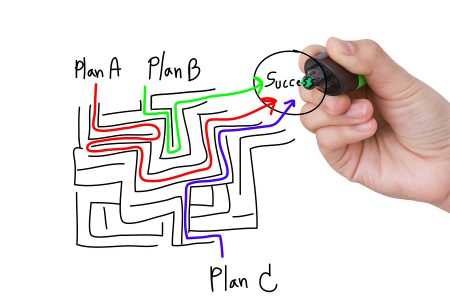This is the home stretch in our coaching conversations checklist and, like the previous steps, should not be rushed or skimmed over. Managers can be most helpful here when they act as a guide. Too many of us want to be problem solvers and jump in too quickly to provide solutions to team members. Coaching requires that we let the person think through plans for themselves if we want the conversation to be effective.
Presumably, by now both you and the coachee have outlined the desired vision of success as well as several alternatives for getting there. You’ve prioritized the options that will work best. Now you are ready to dive into the specific detailed action steps with a follow-up plan.
The role of the manager is critical here, as a guide. You help the coachee identify the specific actions to be taken. You help the coachee enlist the support of others. You need to hear the coachee articulate exactly how he or she will proceed to increase the likelihood that it will happen. Also, you help the coachee commit to timelines for important milestones.
By assigning accountability, you will help your coachee change faster than without it. Even if 85 percent of coachees complete their assignments on the day or morning before their next coaching meeting with their manager, it is still effective.
Here are the three sub steps of this final coaching conversation:
- Develop and agree on an action plan with timelines.
- Enlist support from others.
- Set milestones for follow-up and accountability.
The key role of the manager is to ask for details, clarity, and commitment. This is how managers add value to the coaching conversation. Accountability works, and it works better when there is consistent follow-up.
Managers Also Ask for Feedback
Research suggests that when the coachee can provide feedback to the manager on the value of the session, the quality and relevance of the session is significantly increased. But few managers remember to ask for feedback. One possible way to conclude a coaching conversation would be like this:
“On a scale of one to five, how valuable was this conversation with regard to providing relevant help for you?”
In your work do you use any checklists? How do you guide your people when it comes to laying out an actionable plan for success? I’d love to hear from you. You can contact me here or on LinkedIn.

Did You Enjoy This Article?
Join thousands of other smart business owners like yourself & get our Proffittable Times newsletter.
It's filled with actionable content you can apply immediately.
Sign up now to get started!
– Coach Nancy










